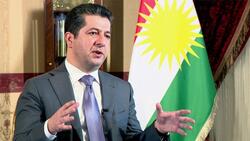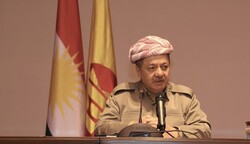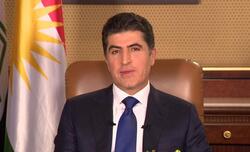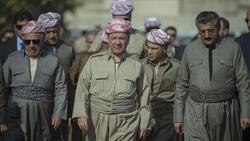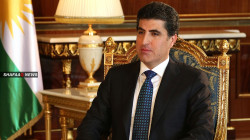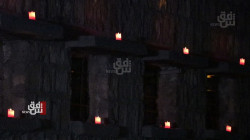423 linked to Anfal Campaign: mass graves and living testimonies speak
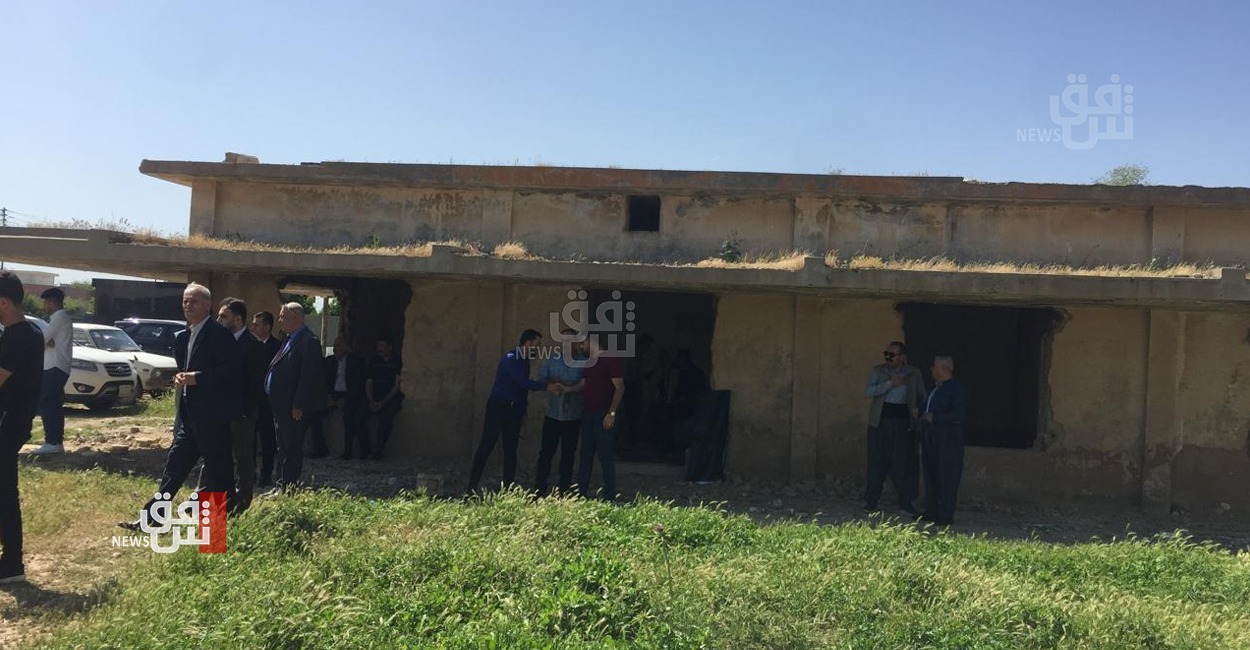
Shafaq News/ Kurds continue to bear the enduring scars of the oppressive policies inflicted upon them by the previous regime, with one of the most brutal and tragic being the Anfal Campaign.
The term "Anfal" encompasses a series of genocidal attacks orchestrated by Saddam Hussein and 'Chemical Ali' between February and September 1988, though it symbolizes the broader genocide endured by Kurds over decades.
On the remnants of detention camps belonging to the former Iraqi army, specifically in the Tobzawa in Al-Hamdaniya District of Nineveh, dozens of Kurds gather to commemorate the 36th anniversary of the Anfal genocide.
The walls of the buildings still echo with the voices of women and children who were held captive in their halls, and "no one knows the extent of the tragedy and injustice suffered by the Kurds, turning them into mass graves or displacing them from their areas," according to the victims' families.
The extent of the tragedy and injustice inflicted upon the Kurds, whether through mass graves or forced displacement from their homelands, remains unfathomable, as expressed by the anguish of the victims' families.
Sate'e Nasih, 52, a witness from the village of Tobzawa, recalled vividly the events of May 20, 1987, stating to Shafaq News Agency that "the place we stand on was a camp for collecting thousands of Kurdish families from the outskirts of Kirkuk, where they were gathered by the repressive authorities of Saddam Hussein's regime. Each hall housed hundreds of women and children, and the villagers were prevented from approaching or reaching them back then."
Sate'e, who participated in a protest in front of the crime's remains, pointed out that "Tobzawa camp served as an initial staging area for gathering Kurdish families, who were later deported in military vehicles to southern governorates. Some were also transferred to prisons, and tragically, thousands faced execution," emphasizing that "the mass graves, even after 21 years since the fall of the fascist Ba'athist regime, still bear witness to what happened."
The witness called the federal government to solve some outstanding issues related to the rights of Kurds who suffered during that period, including "completing the process of repatriating the Anfal victims' remains from the mass graves committed against the Kurds."
"The 36th anniversary of the Anfal genocide reopens the deep wounds of the Kurdish people, marking one of the worst forms of genocide. Many Kurds continue to suffer from its lasting effects, as the Iraqi government has yet to address these families' plight or deliver justice."
Heman Hassib, one of the organizers dedicated to preserving the memory of the genocide against the Kurds, shared with Shafaq News that "the Anfal campaign commenced on February 22, 1988, unfolding across eight stages during which thousands of Kurds perished. Many of their remains lie in mass graves that still await full excavation, preventing the Anfal Kurds from being laid to rest in their rightful areas."
He added that the federal government, represented by the president (Abdul Latif Rashid,) is responsible for issuing an official apology to the Anfal victims.
"Such an apology is not only a duty of the president in his governmental capacity but also aligns with international laws that mandate apologies for crimes committed by the ousted regime against the Kurds," he stated.
Hassib called on "governmental authorities responsible in the Iraqi High Commission for Human Rights to complete the opening of the mass graves related to the Kurds and conduct DNA tests to identify the victims' families," asserting that "It is utterly unacceptable that even 21 years after the fall of Saddam's regime, the issue of mass graves, which stand as irrefutable evidence of this heinous crime, remains unresolved."
He urged the federal government "to expedite the implementation of the Al-Anfal Monument Project at Tobzawa camp, which was the initial site of detention for many victims." Additionally, he called for the trial of 423 individuals accused of Anfal operations, per the directives issued by the Federal Criminal Court.
The Anfal campaign was spearheaded by Ali Hassan al-Majid, commonly referred to as "Chemical Ali," who held the position of secretary in the dissolved Ba'ath Party's northern bureau and served as the military governor of the region. Sultan Hashim, the former Iraqi Defense Minister, assumed the role of military commander during the campaign.
On May 3, 2011, the Iraqi Supreme Criminal Court deemed the "Anfal" campaign a "crime against humanity and genocide". Also, it convicted Ali Hassan al-Majid, the former defense minister of the regime, for supervising a chemical attack on the city of Halabja.
Hundreds of thousands of men, women, and children fell victim to the systematic campaign aimed at exterminating the Kurdish population in Iraq during the Anfal operations of the late 1980s.
They were mercilessly executed, often tied together and shot into mass graves. Entire towns and villages faced chemical attacks, and many women and children endured appalling conditions in camps.
Young men and boys were explicitly targeted and executed en masse.
According to the Kurdistan Regional Government, the Kurdish genocide traces back decades before Anfal, with numerous atrocities claiming countless lives.
"The genocide perpetrated over decades began with the Arabisation of villages around Kirkuk in 1963. It involved the deportation and disappearances of Faylee Kurds in the 1970s-80s, the murder of 8,000 male Barzanis in 1983, the use of chemical weapons in the late 1980s, most notably against Halabja, and finally, the Anfal campaign of 1988." KRG said.
The Anfal campaign in 1988 marked a pinnacle of horror, with hundreds of thousands perishing and families enduring profound suffering and health issues. Additionally, between 1976 and 1988, 4,500 villages were obliterated, devastating Iraqi Kurdistan's agricultural potential and erasing its rural heritage.
The magnitude of the Kurdish genocide is staggering, with an estimated one million people disappearing since the 1960s, presumed dead or missing. Human Rights Watch's 1993 report on Anfal estimated 50,000 to 100,000 Kurdish deaths, but subsequent accounts suggest the toll could exceed 182,000.
